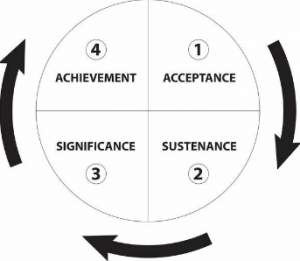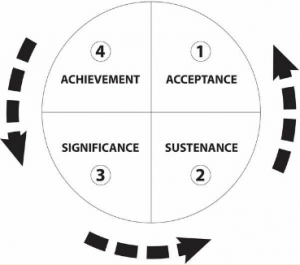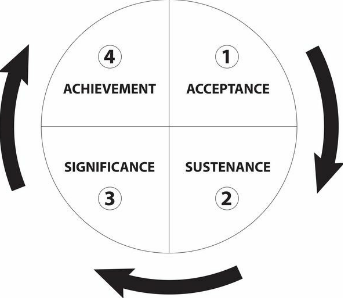Grace or Works?
- Approximate Time Commitment: 10 minutes
Sustainable Resilience gives you tools for understanding what resilience looks like in life and ministry. These images shared by Laura Mae Gardner are one element from the online course Sustainable Resilience. Knowing about resilience is not enough. We all need to engage as faithful and courageous soldiers. How are you doing?
Dive in to find a constructive relationship between faithful fulfillment of calling and faithful stewardship of self, and understand that these two in no way stand in contrast to each other. If you want to look deeper into a life of full surrender and resilience, Sustainable Resilience might be the course for you!
For more information about the Sustainable Resilience course and to register, visit here: www.grow2serve.com/sr
Resource Description
Grace or Works?
Jesus is our example in ministry. From Him we see where our acceptance, sustenance and significance come from, and how they flow together as illustrated in the following diagram. shared by Laura Mae Gardner in her book Healthy, Resilient, & Effective in Cross-Cultural Ministry to help understand Grace and Works.
CYCLE OF GRACE

The foundation of the cycle is not what I do or what I have achieved but the acceptance and assurance of who I am before God. It’s about relationship and the Father’s pleasure.
God’s pleasure with me, and his acceptance of me is based wholly on His love and grace towards me. The essence of the Christian is not about what I do, or even about what I know—it’s about WHO I know—it’s about my relationship with God. A relationship that is intimate!
In other words, a Christian worker needs first and foremost to be grounded in a deep and experiential knowledge of divine grace. Jesus is our example in this respect. How could He not be affected by burnout, He who was constantly on demand by those around Him? His life exhibited and exemplified the life-pattern as shown in the “Cycle of Grace”—based on and sustained by the Father’s pleasure and not because He was on demand by fellow men! The biblical foundation for the “Cycle of Grace” is found in many places. Here are a few key references: Acceptance: John 15:16a; Deuteronomy 7:7–8; Sustenance: John 14: 16–17, 20, 23; Significance: Isaiah 43:4; Achievement: John 15:5.
In many Asian cultures, and not only there, the exact opposite is the rule—the “Cycle of Demand.” If someone has status, can perform and achieve, then that person has significance, will be sustained and eventually be accepted.
CYCLE OF WORKS/DEMAND

Sadly, the “Cycle of Demand” is in full force in many Christian communities. The more a Christian worker is involved in ministry, the more they are valued. Often there is the (not always unspoken) expectation for the Christian worker to be available 24/7. Should their abilities be less or if they make mistakes, then the loss of honor and face will be felt. That can lead to despair or to doing anything that will bring acceptance and honor.
In summary, the general view is that only when someone can achieve will that person gain significance, be sustained and accepted. The ill-effects of this can have many faces: hypocrisy, power abuse, intrigues, burnout and depression—to name just a few.
Christian cross-cultural workers and their families need to be deeply grounded in the “Cycle of Grace” in order to stay healthy, resilient, and effective while glorifying God.
Gardner, Laura Mae. Healthy, Resilient, & Effective in Cross-Cultural Ministry: Electronic Version (pp. 147-149). Condeo Press. Kindle Edition.
Only logged in customers who have purchased this product may leave a review.



Reviews
There are no reviews yet.